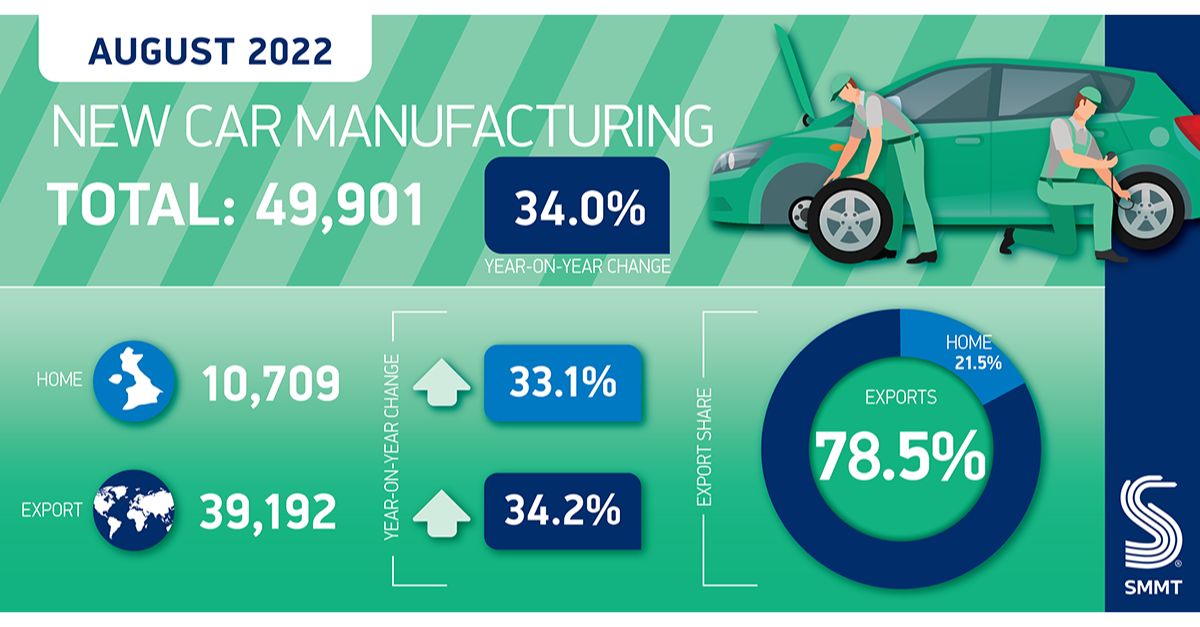Car and commercial vehicle manufacturing both rose sharply in August, with car output up 43% on August 2021 and commercial vehicles surging by 92.9%.
But while commercial vehicle numbers are genuinely strong – August was the best performing month since 2012 while 64,828 units year-to-date is 19.4% higher than the pre-pandemic five-year average – car production is still lagging.
According to the Society of Motor Manufacturers and Traders, the August figure of 49,901 units remains 45.9% behind pre-pandemic levels and year-to-date the industry has produced 78,501 fewer cars than last year and a staggering half a million fewer than 2019.
This means the sector is on course to produce fewer than a million cars for the third year in a row as vehicle manufacturers face crippling costs.
The SMMT found that the collective energy bill for vehicle and component manufacturers in the UK has risen by more than £100m over the last 12 months to over £300m, and these costs are expected to more than double again next year.
Meanwhile, average prices of raw materials are up by 38%, semiconductors by 95% and logistics costs have climbed by 43%.
As a result, 41% of manufacturers have delayed or cancelled investments, 13% have reduced shifts with nine per cent cutting jobs.
Mike Hawes, SMMT Chief Executive, said, “While another month of rising UK car production is good news, and testament to sectoral efforts to overcome supply chain shortages, it overshadows what is an extremely tough and uncertain environment for manufacturers. Volumes are down dramatically and firms are having to take drastic steps to safeguard their businesses in the face of myriad challenges. “The government’s measures announced last week to alleviate crippling energy costs provide valuable respite, but long-term action is needed to restore stability and provide the sector with a globally competitive investment framework. Reform of business rates, enhanced capital allowances, an affordable and secure supply of low carbon energy, and investment in new skills can enable this critical sector to deliver the economic growth, productivity improvements, balance of trade benefits and job security the UK sorely needs.”

















